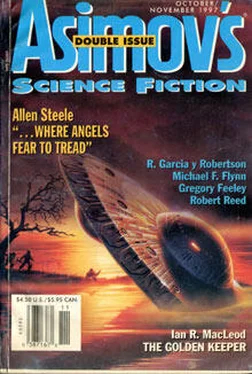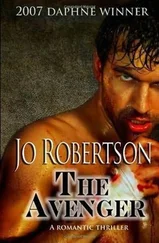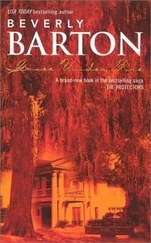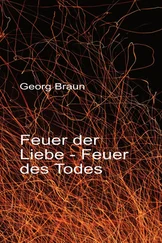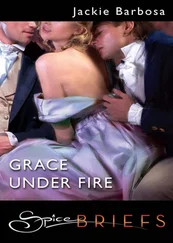Fair Verona
by R. Garcia y Robertson

Illustration by Darryl Elliott
“In fair Verona, where we lay our scene…”
—
Romeo and Juliet, Prologue
Antonio first saw her in the night, at Carnival on the Via Cappello. He had just staggered out of the inn that came to be called the Casa di Giulietta, because of its marble balcony. A surge of revelers filled the torchlit street. Harlequins, lace doves, street minstrels, and drunken louts—laughing, dancing, singing, and colliding, tripping over cobbles, falling into fountains, and pissing on the bonfires.
Standing under “Romeo’s” balcony, with enough good red bardolino aboard to float a boat, Antonio wondered what mischief he meant to get into. Should it be a woman, or a fight? Or maybe both. Then he saw her. His heavenly vision. Lady Love in a gold lace mask and a wide-sleeved gown. She turned, winked, blew a kiss, then was gone, whirled away by the throng.
Without taking fuddled eyes off the crowd, he grabbed Proteus, his manservant, who was busy tipping the innkeeper. “Did you see her? Who was she?”
Proteus pushed a silver groat on the barkeep, then turned to his drunken master. “Who was who?”
“The woman in the gold mask. She was shockingly beautiful.”
Proteus looked askance at the crowd. No woman seemed to stand out. “How could you tell? She was masked.”
“I can tell,” Antonio insisted. He had seen it in the smile above her swan white throat. “You can tell a beautiful woman by her walk. By the way she carries her head.”
“Doubtless.” Proteus slipped a spare bottle of bardolino into his jacket. The way tonight was headed, his master would be brought to bed soused. Or not at all.
“She has to be the most beautiful lady at Carnival. I’d stake my life on it. My fortune. My estates. Even my slim hope of seeing salvation.”
“I have nothing to match against that,” Proteus admitted.
That she was a lady was obvious. Her gown, her gold-linked belt, her wig powdered with gold dust—were all beyond the means of Verona’s most industrious courtesans. Plunging cloth-of-gold decolletage had shown off sculpted neck and shoulders, and round firm breasts, right down to the nipples. But Antonio would have been wild for her if she had worn sackcloth. Or a nun’s habit.
Pushing Proteus aside, he lurched into the street. The crowd parted smartly for him. Despite his black-feathered mask, none could mistake the prince’s nephew in tight hose and pearl-studded jacket, sword at his side and spurred like a Tartar.
He looked up toward the Piazza Erbe, the herb market atop the ancient forum. Nothing. Turning toward the Via Stella, he spotted a flash of gold in the throng. Antonio took off, spurs striking sparks on the pavement.
The crowd parted even more promptly. Antonio Cansignorio della Scala was so used to such deference, he barely noticed. Everything in Verona seemed arranged for his pleasure. He was the Noble Dog. Tall and handsome, an accomplished troubadour, a skilled condottiere, a passable silversmith, and a good Catholic—but an enemy of the Pope. Most of all, he had the good luck to be a nephew to Cangrande della Scala, the “Big Dog” who lorded over Verona. Directly descended from Mastino I, the Mastiff, founder of the Scaligeri dynasty.
The woman in gold turned a corner, headed for the Piazza Bra. Antonio dashed down a side street, cutting her off. But when he got to the Piazza, he could not pick her out of the costumed crowd. Had he lost her? He doubled back up an alley. There was only one other way she could have gone. Ahead loomed the Arena, Verona’s ancient Roman amphitheater. Second only to the Colosseum in size, its colonnade blocked off the entire eastern side of the Piazza Bra. He had her trapped. Unless she hid in the Arena itself, hardly the place for a woman alone on Carnival Night.
Then he spotted her. Beyond the mouth of the alley, framed in one of the Arena’s dark cavernous archways, a gold icon in a black niche. He called to her to stop. She turned to look back, standing still and composed. Waiting. She had the good sense to know when the game had gone far enough.
Two costumed men stepped out of the gloom at the head of the alley, coming between her and him. One wore a jester’s belled cap and floppy straw boots. The other was tall, wearing the black cloak and white birdfaced mask of a plague doctor. Both had swords at their sides.
The Jester called out, “Montague or Capulet?” The worst words any honest Veronan could hear in a dark alley.
“Neither, swine!” Antonio swore, drawing sword and dagger, not for an instant thinking that this was some honest mistake. Masked or not, all men knew the prince’s nephew. Nor would it be the first time that a street feud was used to cover murder. “A thousand pardons, we thought the man was a Montague.”
And Antonio had enemies aplenty. Mighty enemies. A godawful long list. Headed by Pope Clement V, Christ’s Vicar on Earth, and lapdog of Philip the Fair. Guelfs in general hated him. So did the Visconti vipers of Milan. Then there were the French, a blasphemous nation of traitors and ingrates. Whole hosts of people would be happy to hear that the Noble Dog had died in some dark alley. Some would even take the trouble to arrange it.
But it was easier wished than done. He glanced past the two men to the woman. She took no active part, standing motionless, lips parted in horror—or perhaps excitement; her mask made it impossible to tell.
“Drop your sword,” the Jester shouted. “We only mean to talk.”
“Just a word,” the Plague Doctor assured him.
“My word is ‘Begone,’ ” Antonio retorted. “Draw if you be men!”
The Jester drew blade, saying over his shoulder, “Back me.”
Antonio sprang to meet him. Swords clashed and grated. Bells rang on the Jester’s cap as he backpedaled, parrying briskly. Fighting drunk, and full of anger, Antonio easily forced them back. Too easily. Both men swiftly gave ground. Suddenly the Jester slipped in his floppy boots, going down on one knee with a shriek of fear.
Piss-poor acting. Instead of trying to get in past the man’s guard, Antonio spun about, putting his back to a wall.
A third assassin, dressed like a Saracen in a cloak and turban, leaped from a doorway. His scimitar sliced empty air, where the Noble Dog had been.
The trap had been obvious even to the half-drunk Antonio. Two men falling back before one, while the ringing bells on the Jester’s cap covered the third attacker’s footsteps. Antonio had seen it done before. And better.
He slashed at the Saracen’s throat, feeling the solid jar of contact down the length of his sword arm. Sure of his kill, the Saracen never had time to parry. Blood sprayed the width of the alley. The assassin crumpled, his head hanging sideways.
Antonio congratulated himself. Not bad for fighting on a head full of bardolino! It was two to one again.
The Jester scrambled back to his feet, cursing. He called to the Doctor, “Come, man, make worm’s meat out of him!”
The Jester met Antonio’s drunken attack, while the black-cloaked Plague Doctor tried to get at the Noble Dog’s left side. Cool professionals, they acted unfazed by the death of their comrade. But the narrowness of the alley fought for Antonio, keeping them from both getting to him at once.
Abandoning his caution, the Jester pressed Antonio hard, trying to create an opening for the Doctor. Swords met, rasped, struck sparks. Antonio parried with his dagger, thrusting past the Jester’s guard. His point pierced the Jester’s jacket, which was sewn with playing cards. Striking metal, the Noble Dog’s blade bounced back. There was steel hidden beneath the card-sewn jacket. The Jester’s boldness was explained—his ringing Fool’s Cap hid the clang of armor.
Читать дальше
